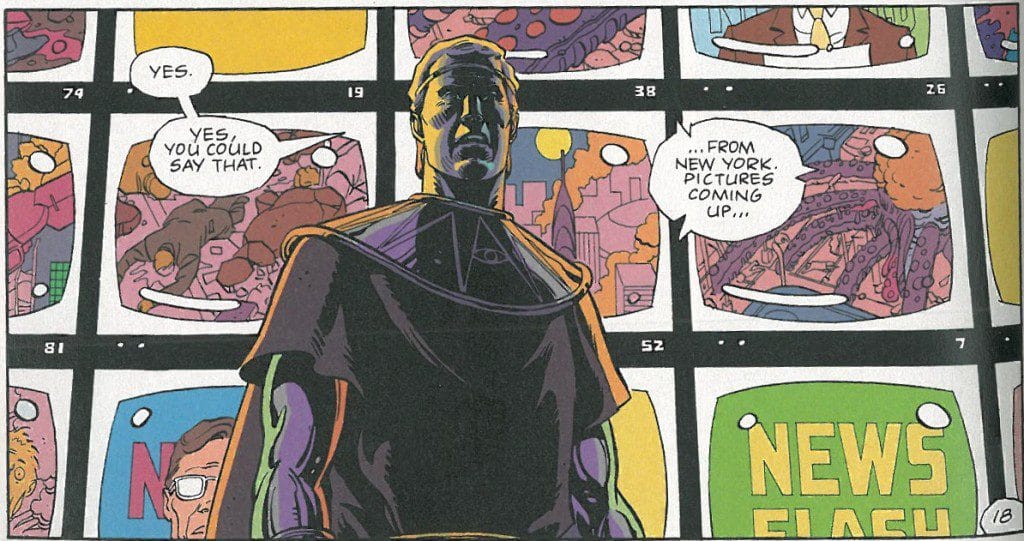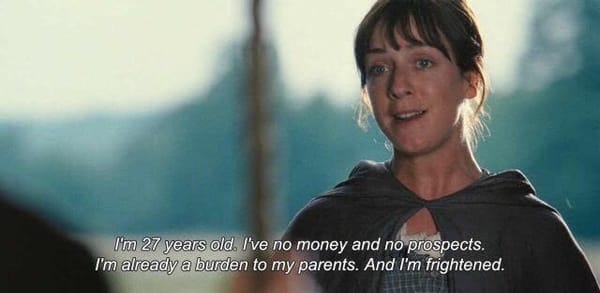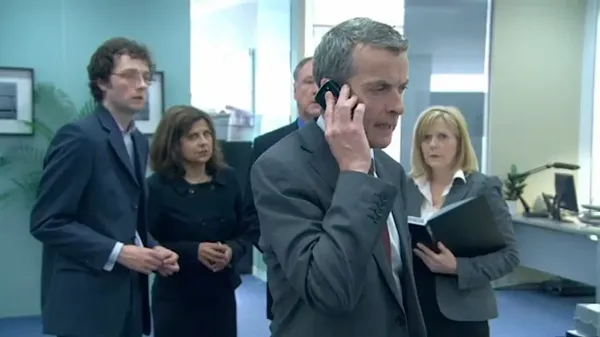🔌 Inneresting #263 - Who's got the power?
With scenes and sequences in a story, who has the power? Who's in control? And what will it take to change the character in the driver's seat?

Dramatic scenes often depend on an imbalance of power and control. These forces can change suddenly, like a dance where partners switch off leading. As an example, consider the climactic standoff from The Departed, as recapped by From the Screen:
Beyond the twists and turns of the larger narrative, this sequence's power games are easy to follow. They rely on using the element of surprise, setting up and subverting who the audience should assume will come out of this fight as the winner.
In John Wick, Wick is tied to a chair with goons standing next to him. A plastic bag is shoved onto his head to suffocate him. Meanwhile, Viggo sits in a chair opposite Wick, feigning that they're having a conversation on equal terms, but with one key difference: Viggo can stand and leave whenever he chooses. However, it is very hard to kill John Wick:
Wick gets help taking control of the scene. Marcus fires a shot from outside with a sniper rifle, taking out one of the guards and giving John a chance to escape. But that's all it is, a chance. Wick doesn't have the escape handed to him.
The movie is called John Wick. It matters that the one doing the heaviest lifting is Mr. Wick himself.
Allen the Guy breaks down a scene from season 5 of The Boys to take us through the complicated shifting of power and dominance that happens when Homelander confronts the lab that conditioned and tortured him as a child:
There's a contrast in this scene between the dominance of the past (the people experimenting on Homelander as a child, causing him physical and emotional pain) and the present moment where they see the results of their work up close. The very violence they enacted is now hanging over their own heads.
From the moment he was born, Homelander had immense physical strength and capacity for destruction, but as a child his mind was still malleable. His thoughts and emotions were his weak point, and what felt to him like random cruelty was actually part of a plan to contain him within a mental prison, since there was no way to permanently physically imprison him.
But the power dynamic over the course of this scene isn't just an inversion. Homelander starts out in control and ends in control. But those end points aren't what make the scene dynamic. It's showing all the shifts that occurred in the past, which he's still re-living as trauma, and the moment that Barbara's explanation temporarily upends his worldview that keep the arc from looking like a straight line.
With all these examples, bluster and force hasn't necessarily lead to power and victory. The biggest disparity we're going to look at comes from a season 2 episode of Foundation. Emperor Cleon XVII (aka Brother Day) has just witnessed his fleet obliterate Terminus, the home planet of the Foundation. He has every reason to feel very powerful indeed, having just ordered an entire planet reduced to rubble, and announces his plan to do the same to all seven planets that were connected to the Foundation.
But sometimes, being the Galactic Emperor with the biggest army and the biggest temper just isn't enough to maintain control:
Reaching the highest rung of the ladder means you have the greatest distance to fall. Tension comes to a scene or a larger arc because there's the potential for a massive shift in power.
It's not a competing army that takes down this Cleon, but a scruffy space trader and a principled general willing to say no to his commander. Brother Day sees them both as beneath him, and so is unprepared for them to try and take his power away.
One last note on this sequence: There's always something to be said for hitting the irony hard when a character meets their end. Brother Day's life ends as he floats in space toward the rubble of the planet he just ordered destroyed. The audience gets to see what he thought was his greatest victory become his final resting place.
Seriously, 👨🍳😘👌
👋 Are you new here?
Inneresting is a weekly newsletter about writing and things that are interesting to writers. Subscribe now to get more Inneresting things sent to your inbox.
And if you can't wait until next week for more Inneresting, check out the Quote-Unquote Apps Blog where we keep previous issues and other posts about screenwriting and things interesting to screenwriters.
Previously on Inneresting…
In case you missed it, last issue’s most clicked link, Maria Popova looks at Carl Jung’s reasoning that suffering may play some role in the creative person’s life, but that true creativity is about freeing oneself from psychological delusions.
What else is inneresting?
- John Fox breaks down types of endings that leave audiences feeling unsatisfied.
- David Malki theorizes that humans instinctively bemoan new technologies, like the telephone or printing press. Adding compelling evidence? The time Socrates argued that the written word was an affront to scholarship and communication.
- Suggested listening if your weekend includes a grill and a bluetooth speaker: Easy Star All-Stars cover David Bowie on Ziggy Stardub.
And that’s what’s inneresting this week!
Inneresting is edited by Chris Csont, with contributions from readers like you and the entire Quote-Unquote team.
Are you enjoying this newsletter?
📧 Forward it to a friend and suggest they check it out.
🔗 Share a link to this post on social media.
🗣 Have ideas for future topics (or just want to say hello)? Reach out to Chris via email at inneresting@johnaugust.com, Bluesky @ccsont.bsky.social, or Mastodon @ccsont@mastodon.art




